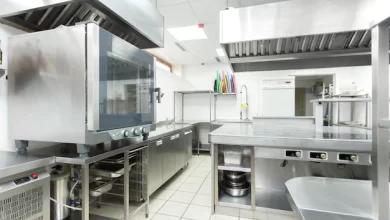
An excellent strategy to gain free exposure with your target audience is to invite journalists to a press event to generate buzz around a new product launch or significant news. Press conferences may be a terrific opportunity to network with influential people and entice journalists to engage with your brand.
Here is our comprehensive guide to planning a press event that will be a success and provide a good return on investment. If you’re interested to know more, then keep reading this article!
1. Make sure you have news
Make sure you have something to share that the local media will want to cover in person before you agree to or suggest holding a press event. Newsrooms are less able to commit resources to every development as their staffs get smaller and smaller. Use a news release in place of a press event if you believe your news is noteworthy but does not merit the status of an event to save time and money for both you and your organization.
2. Clarify your aims and goals
What do you hope to accomplish with the gathering? Definition of the event’s desired goal is essential before you start preparing. Are you letting the media know about the release of a new product or to spread the word about a campaign? You’ll stay focused on accomplishing your end objective if you establish a clear mission statement for your event.
3. Spokespeople
It’s frequently decided for you who will give your news. The choice is already made for you if the CEO wants to be the spokesperson. But do other employees have any roles? Do you have a client or ally who can contribute? It’s advisable to keep the number of spokespeople to a modest level; keep in mind that reporters may only have time for one or two interviews with important employees or spokespeople when they do attend your event.
4. Press resources
It’s a great idea to write a media alert to welcome the media. Note that the most important information is presented first, while the background and boilerplate details are presented last. Media notifications must to include a date and a contact number.
5. Make a guest list
Who do you hope your event will attract? Are you directing your efforts toward the appropriate journalists and which newspapers are best for your event? Consider inviting influencers, bloggers, and vloggers in addition to print media to generate extensive coverage. You’ll also get speedier results with online media because they can submit content rapidly, if not instantly. If the list is confusing you, make sure to ask help from your corporate event planner.
6. Timing is crucial
Do your study on significant industry dates to prevent conflicts with your event. If your event is geared toward a leisure marine audience, for instance, you should avoid September because the Southampton Boat Show and Cannes Yachting Festival are two significant international marine events taking place this month, to which your target journalists will probably already have committed.
7. Location
The location of an event is almost as crucial as the news that is being announced. Does the announcement link with a given location or does it make more sense to hold it inside your office?
Make sure there is enough space for a podium, dais, and seating for 20 to 30 people using school chairs, as well as space in the back for television cameras. Consider investing in a multi-box that allows broadcast media to plug into and access the feed from the podium.
8. Identify your message
A condensed version of your primary news makes up the message, which is as crucial to the news. What do these announcement’s major points and your organization’s core values convey about each other? All communications and marketing materials related to the event should include your messages.
Keep in mind that contemporary key messaging should be:
- Centred on the audiences’ interests and problems rather than just your company’s goods or services
- Simple to understand, concise, and free of buzzwords
- Absolutely true and verifiable
- Useful for every strategy you are developing for your client’s program or campaign
- Written so differently from your client’s competitors as to not be applicable
9. Make the event known to your target media
Make sure your event doesn’t get buried among the 20 event invitations that journalists receive on average each week. Personalize the announcement and keep the details brief to ensure it stands out from the throng. Include all the necessary information, and sound inviting to cause FOMO. Send out your invitations, and then for a more personal touch, follow up with a phone call. Journalists enjoy feeling special, and this is a fantastic approach to starting a connection.
10. Building of assets
You should make sure that the invited media has access to everything they need to cover your event, including a media kit during the event and high-resolution photographs later. Although hiring a professional photographer can be expensive, it is important since publishers and bloggers will demand high-quality photos to go with their features. A well-written media kit with precise details about your announcement can help the media with their stories; digital assets are typically well-liked.
11. Follow up after the event
Although the event may have ended, your effort has not! Now you need to check in with the journalists to make sure they have everything they need and to remind them to confirm the publication date of the coverage. In order to express your gratitude and highlight the main points of the event, thank them for coming. To ensure that journalists have all the information they need, including your contact information in case they have any questions, provide a comprehensive post-event press release.
How Small Businesses May Get Media Coverage:
According to our observations, your chances of getting press coverage for your event are significantly increased if:
- The event invitation is eye-catching and provides all the necessary details quickly.
- Because the journalists’ time is valuable and they have demanding jobs, the event is pertinent to them and their lines of work.
- Due to the midweek date, travel on weekends is avoided. Despite their intense interest in your goods, journalists also have families just like the rest of us.
- You host foreign-travelling journalists in your accommodations. This implies that they won’t have to worry about making travel or hotel reservations in addition to enjoying the event. For Editors, who have the final say in commissioning journalists, this will also make the event a more cost-effective proposition.
- You take the effort to personalize your invitation, whether by making a follow-up contact or sending materials that are geared to specific people. It will stand out in a sea of generic emails and journalists will appreciate the effort.
Photos:


